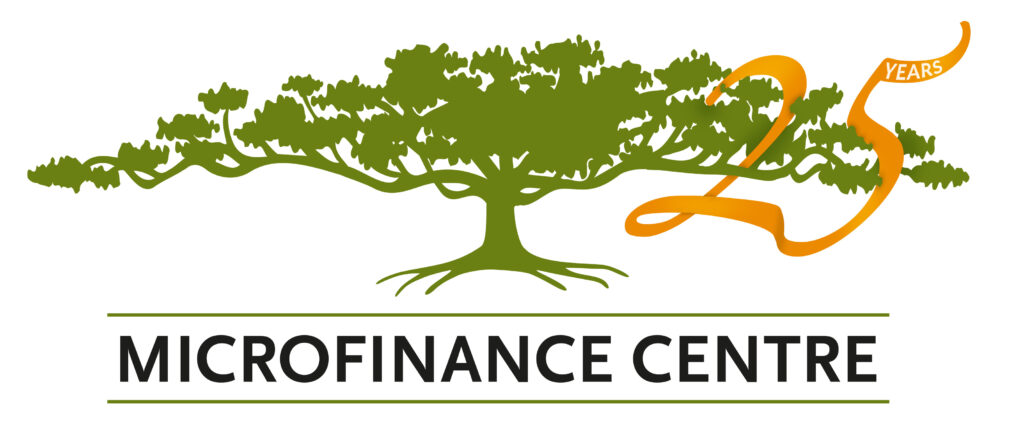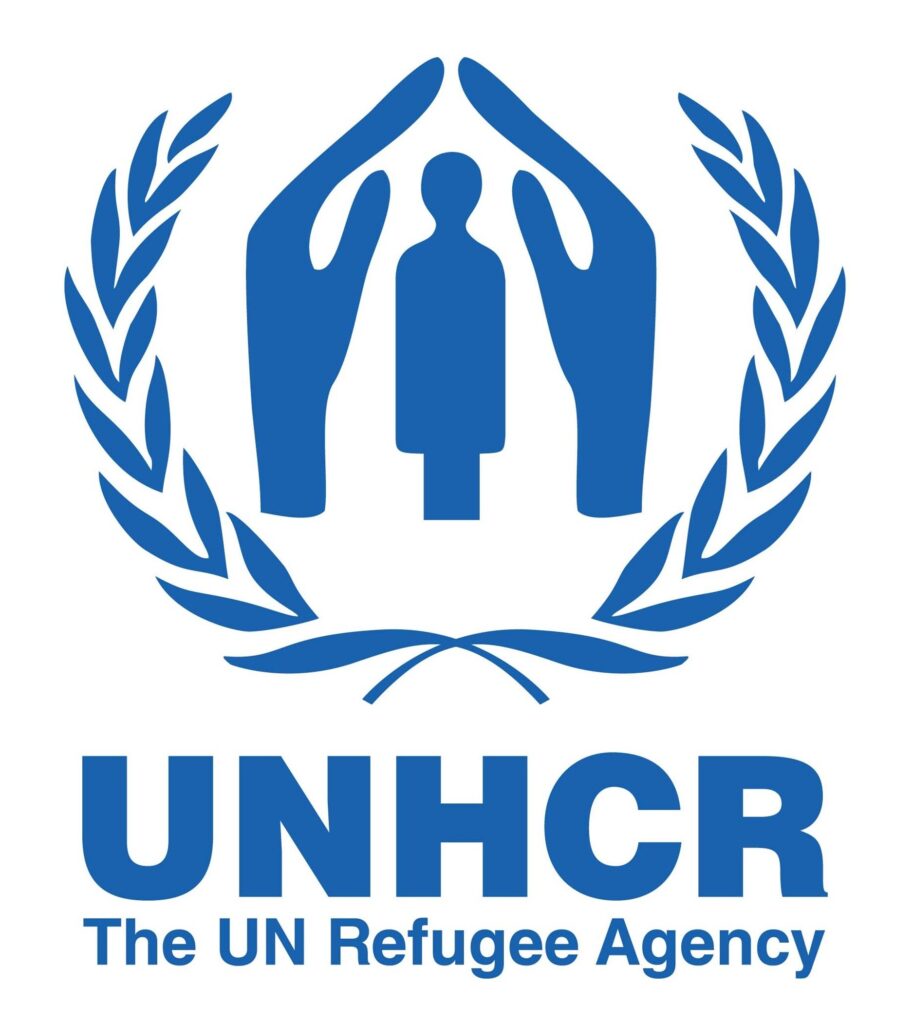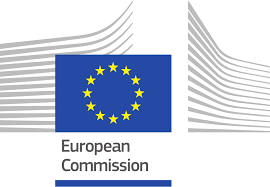KYC why it matters for the refugees’ access to finance- MFIs focus.
In Europe, financial institutions are subject to strict AML/KYC requirements, which are intended to prevent money laundering and funding of terrorism. These requirements require extensive due diligence procedures, such Know Your Customer (KYC) checks, in order to verify the identity of their clients. Although these rules are essential in stopping illegal financial activity, they provide serious obstacles to financial inclusion, especially for vulnerable groups such as refugees. For refugees, financial inclusion is crucial since it provides them with chances for economic security, self-sufficiency, and assimilation into the new country. For people to reconstruct their lives in new settings and have a good impact on the local economy, they need to be able to access formal financial institutions so they may save money, get credit, and participate in the economy (Arner et al., 2019). With a particular emphasis on the function and difficulties encountered by microfinance institutions, this essay seeks to explore the significant influence of AML/KYC rules on the financial inclusion of refugees in Europe. Despite their good intentions, these rules put obstacles in the way of migrants because of their strict identification requirements. In this blog we explore how these obstacles prevent them from obtaining basic financial services, which in turn prevents them from becoming economically empowered and integrating into society (Buttigieg et al., 2019). Additionally, we will show how microfinance institutions, which often assist marginalized groups, struggle to comply with AML/KYC laws while trying to assist refugee populations.
Financial inclusion of refugees
In 2022, a staggering 108.4 million people were forced to flee their home; 35.3 million of them were refugees. The number of forcibly displaced and stateless people in Europe rose to 21.8 million by the end of 2022, including almost 12.4 million refugees, 1.3 million asylum-seekers, 7.2 million internally displaced people and 474,000 who were stateless (UNHCR, 2022) Primary countries of origin include Ukraine, Syria and Afghanistan. So how are refugees and financial inclusion making access to financial services as fundamental for the integration and inclusion of forcibly displaced and stateless persons without a bank account, access to decent work is extremely limited, as they may not receive a salary. Many landlords requests a bank account to sign a rental agreement. Social protection benefits oftentimes require a bank transfer and to successfully run and grow a business. Advanced financial services, such as microcredit, and loans are often key and global comparison, countries in Europe provide an enabling deburring framework to protect and shoot refugees. Nevertheless, important barriers for Financial Inclusion remain for forcibly displaced persons of all nationality and legal statuses. This includes legal and regulatory challenges, as well as administrative and practical barriers.
Understanding AML/KYC Regulations and their Application
Anti-Money Laundering (AML) and Know Your Customer (KYC) policies are set in place to stop financial crimes such as money laundering, funding of terrorism, and other illegal actions in the financial industry. In order to ensure transaction transparency and keep an eye out for any suspicious activity, these rules mandate that financial institutions authenticate and verify the identities of their clients. Financial institutions operating in Europe may follow the recommendations issued by the European Banking Authority (EBA) to ensure compliance with AML/KYC rules (Khisamova, 2020).
The European Banking Authority’s (EBA) guidelines, issued on March 31, 2023, provide a nuanced approach to financial inclusion for vulnerable groups, especially refugees and displaced individuals. These guidelines advocate for flexible identity verification, allowing financial institutions to accept alternative documentation and postpone initial customer identification under certain conditions. They emphasize mitigating money laundering and terrorist financing risks through stricter monitoring controls while advising against broad de-risking practices. Instead, a focus on individual risk assessments is encouraged to ensure fair access to financial services. This balanced approach is exemplified by actions taken during the Ukrainian crisis, where banks, including Liechtenstein’s largest, offered fee-free accounts and services to Ukrainian refugees, aligning with the EBA’s commitment to combining robust financial security measures with the essential need for financial inclusion among vulnerable populations.
The processes, due diligence, and risk assessment methods that financial entities—including banks and other institutions—must implement in order to comply with the regulatory criteria established by the EBA are described in depth in these recommendations. Microfinance institutions are subject to AML/KYC requirements that also apply to financial institutions. Microfinance institutions must adhere to these restrictions even if its primary goal is to assist underprivileged and disadvantaged people. Like bigger financial companies, they must comply with strict guidelines for client identification, due diligence, and reporting of questionable activity. However, because of their limited resources and emphasis on serving financially vulnerable populations, such as refugees, microfinance institutions may face disproportionate difficulties in applying these standards.
Microfinance and AML/KYC regulations
What is microfinance?
as defined by the ESF+ regulation, is a comprehensive financial concept that plays a crucial role in the European Union’s support mechanisms for the sector, like InvestEU. It encompasses a range of financial solutions including guarantees, microcredit, equity, and quasi-equity. Integral to this definition is the inclusion of vital business development services such as individual counseling, training, and mentoring. These services are primarily targeted at individuals and micro-enterprises that encounter difficulties in accessing traditional credit for professional or revenue-generating activities.
This definition broadens the scope of microfinance beyond mere financial transactions, emphasizing the importance of accompanying non-financial support. It acknowledges the unique challenges faced by certain segments of the population and micro-enterprises in accessing credit, and responds by offering a more holistic solution that combines financial aid with essential skill-building and guidance services. This approach reflects a deep understanding of the diverse needs in the microfinance sector and underlines the European Union’s commitment to fostering inclusive financial growth and development.
In Europe, the microcredit market is characterized by fragmentation and diversity in provider types. The majority (88%) operate as NGOs, non-bank financial institutions (NBFIs), or credit unions/financial cooperatives, with a minority functioning as banks or governmental bodies. These entities can be further categorized based on their legal classification, namely whether they possess a banking license.
Non-bank MFIs, encompassing NGOs, NBFIs, credit unions, and occasionally public funds, serve distinct market segments. NGOs, often not-for-profit, focus on vulnerable populations in alignment with their social missions. NBFIs, typically for-profit, provide credit services targeting the lower end of the market and operate under regulations separate from banks. Credit unions, member-based and savings-oriented, predominantly serve individual members, with a significant presence in rural areas and certain countries where they are the sole microloan providers.
Banks offering microcredit, which constitutes a small fraction of their overall operations, engage in this activity either as part of corporate social responsibility initiatives or as specialized commercial ventures. These include commercial banks with downscaling programs, savings and cooperative banks, ethical banks focusing on social enterprises, development and state-owned banks, and MFIs transitioning into banks.
While banks and non-bank MFIs hold comparable portfolio shares, non-bank MFIs serve a larger client base with generally smaller loans, indicating their focus on poorer client segments. The legal framework governing non-bank MFIs is crucial, given their significant role in fostering social and financial inclusion among the most vulnerable. This report primarily examines legislation pertinent to non-bank MFIs’ microcredit disbursement.
Impact of AML/KYC Regulations on Refugee Financial Inclusion
When trying to obtain financial services, refugees face several obstacles, and AML/KYC laws make matters worse. First of all, a large number of refugees lack the identity and paperwork that banking institutions want. Due to persecution or violence, individuals are often forced to flee their home countries and arrive in host countries without proper identity, which makes it challenging for them to meet the strict requirements for identification set out by AML/KYC legislation. Refugees’ financial marginalization is exacerbated by the difficulty they have opening bank accounts and obtaining other financial services due to the lack of proper documentation (Kurum, 2023). Furthermore, conventional financial institutions often impose restrictions on refugees’ access. Many financial institutions have strict rules that require certain kinds of documents and evidence of residence for those wishing to create accounts or use financial products in order to comply with AML/KYC laws. Refugees are therefore shut out of these formal financial institutions since they may not have such papers because of their status or circumstances (Lai, 2018). Their inability to get credit, store money safely, or carry out simple financial operations is hampered by this exclusion, which also makes it more difficult for them to integrate economically and maintain financial stability in their new country.
How AML/KYC regulations exacerbate financial exclusion for refugees
Financial exclusion for refugees is worsened by AML/KYC rules in a number of ways, mostly because of their strict identification requirements and the financial institutions’ resulting unwillingness to service this group because of compliance concerns. Strict Identification Procedures Mandated by AML/KYC Regulations, Requiring Specific and Frequently Government-Issued Documents for Verifying the Identity of Customers, May Lead to Exclusion. Since they were uprooted and have the status of asylum seekers, refugees encounter several obstacles in the absence of these official credentials (Poskriakov et al., 2020). Their incapacity to meet these rigorous identity standards immediately results in their denial of access to financial services. As a result, their financial inclusion and capacity to engage in the formal economy are hindered by their inability to create bank accounts or get necessary financial goods. Financial Institutions’ Reluctance to Serve Refugees Because Of Compliance Risks Financial institutions often see refugees as high-risk clients in an attempt to comply with AML/KYC laws. These institutions may have compliance issues due to the dearth of thorough identity documentation and the possible challenge of tracking transactions from people with dubious backgrounds (Ramachandran et al., 2018). As a result, a lot of financial institutions are reluctant or hesitant to assist refugees because they are worried about potential regulatory consequences and the extra paperwork that comes with helping this demographic. This circumspect attitude exacerbates the financial isolation of refugees from mainstream financial institutions and hinders their assimilation into the official financial system.
Examination of Microfinance Institutions in Relation to AML/KYC Regulations
MFIs play a role in enhancing access to finance for underprivileged and disadvantaged groups like refugees and are essential in promoting financial inclusion. These organizations often focus on offering financial services, such as credit, savings accounts, and insurance, to those with restricted access to conventional banking networks (Sreekumar and Sai, 2012). By providing specialized financial goods and services, encouraging entrepreneurship, and aiding in the economic growth of these populations, they want to empower underprivileged communities. However they at times they also face challenges in adhering to AML/KYC Regulations:
- Resource Limitations and Compliance Costs: Microfinance institutions have difficulties covering the high expenses of complying with AML/KYC standards since they usually have less resources than bigger financial institutions. Extensive due diligence measures are mandated by these requirements, which include continual transaction monitoring, client identity verification, and reporting of suspect activity (Sreekumar and Sai, 2012). It is sometimes difficult for microfinance institutions to commit enough resources to meet these stringent standards because of their limited human and financial resources. Because of this, they can find it difficult to fund the complex compliance infrastructure and employee training required to successfully abide by AML/KYC rules.
- Balancing Regulatory Compliance with Serving Marginalized Populations: Microfinance institutions have to strike a careful balance between achieving regulatory compliance requirements and providing financial support to their target customer, which includes refugees and other disadvantaged and financially excluded groups. The goal of these organizations is to offer inclusive financial services, which may conflict with the strict identification and monitoring criteria set out by AML/KYC legislation (Vasudeva Murthy, 2022). Because of the perceived compliance risks involved with servicing persons without proper paperwork, microfinance institutions are sometimes discouraged from providing services to refugees and other vulnerable populations by the strict compliance standards. Microfinance organizations have a great deal of difficulty navigating the competing goals of efficiently servicing vulnerable groups and adhering to regulations.
Case Study: SiS Credit (Bulgaria)
SIS Credit is a microfinance organization that focuses on providing services to underprivileged populations. The rigorous compliance requirements of AML/KYC legislation posed challenges for this institution, despite its dedication to inclusion, when it came to extending its services to refugee communities.
SiS Credit helps primarily start new businesses, encountering mostly local entities with a foreign individual as the owner (and TCNs). For such individuals SIS Credit follows a very detailed process of on-boarding which includes verification of temporary residence documentation alongside with the national IDs, and also ongoing checks/verifications in WorldCheck for each individual. The process is very heavy and costly, but we manage to have full compliance with AML/KYC/ABC policies.
Potential Solutions and Improvements
Adaptable identification processes designed specifically for this vulnerable population are essential to addressing the difficulties encountered by refugees. Alternate identification procedures that take into account the special conditions of refugees would make it easier for them to get necessary financial services (Arner et al., 2019). To further reduce compliance demands and maintain regulatory integrity, additional restrictions or exemptions may be put in place for microfinance organizations that serve vulnerable groups, such as refugees. Working together is crucial, and providing capacity-building programs to help microfinance institutions comprehend and abide by AML/KYC rules is crucial. With the help and training these programs would provide, these institutions would be able to comply with regulations without sacrificing their efforts to assist refugees (Buttigieg et al., 2019). In order to ensure a balanced approach that addresses compliance needs while advancing financial inclusion for refugees in Europe, regulatory bodies, financial institutions, and refugee support organizations should simultaneously foster dialogue and advocate for inclusive policies and regulatory reforms.
Conclusion
Refugees have significant obstacles in achieving financial inclusion due to the burden of AML/KYC rules. Building inclusive financial systems requires striking a balance between the demands of excluded people and regulatory aims. This calls on stakeholders to work together to push for reforms that give equal weight to the needs of refugees in Europe in terms of financial inclusion and regulatory integrity. These kinds of actions are essential to helping refugee groups integrate socially and economically.
If you would like to learn more about KYC/AML and refugees financial inclusion we encourage you to watch the session at the SFV moderated by Susanne Klink Senior Livelihood Officer UNHCR
References
- Arner, D.W., Zetzsche, D.A., Buckley, R.P. and Barberis, J.N., 2019. The identity challenge in finance: from analogue identity to digitized identification to digital KYC utilities. European business organization law review, 20, pp.55-80.
- Buttigieg, C.P., Efthymiopoulos, C., Attard, A. and Cuyle, S., 2019. Anti-money laundering regulation of crypto assets in Europe’s smallest member state. Law and Financial Markets Review, 13(4), pp.211-227.
- Commission Staff Working Paper “Microcredit for European small businesses,” SEC (2004)1156; “Competitiveness and Innovation Framework Programme,” 1639/2006/EC; Commission recommendation 2003/361/EC.
- European Commission (2007), The regulation of Microcredit in Europe. Expert Group Report
- Commission Delegated Regulation (EU) 2021/1078 of 14 April 2021 supplementing Regulation (EU) 2021/523 of the European Parliament and of the Council by setting out the investment guidelines for the InvestEU Fund
- Article 2(1)(16)Regulation (EU) 2021/1057 of the European Parliament and of the Council of 24 June 2021 establishing the European Social Fund Plus (ESF+) and repealing Regulation (EU) No 1296/2013
- European Banking Authority. (n.d.). Anti-Money Laundering and Countering the Financing of Terrorism. Available at: https://www.eba.europa.eu/regulation-and-policy/anti-money-laundering-and-countering-financing-terrorism.
- Khisamova, Z.I., 2020. Concept of Digital Currencies of Central Banks: Main Risks in Observing the Requirements of AML (” Anti-Money Laundering”) and KYC (” Know Your Client”). Actual Probs. Econ. & L., p.508.
- Kurum, E., 2023. RegTech solutions and AML compliance: what future for financial crime?. Journal of Financial Crime, 30(3), pp.776-794.
- Lai, K., 2018. Will HK’s new AML rules have the desired deterrent effect?. International Financial Law Review.
- Poskriakov, F., Chiriaeva, M. and Cavin, C., 2020. Cryptocurrency compliance and risks: A European KYC/AML perspective. Blockchain & Cryptocurrency Regulation 2020.
- Ramachandran, V., Collin, M. and Juden, M., 2018. De-risking: an unintended negative consequence of AML/CFT regulation. The Palgrave handbook of criminal and terrorism financing law, pp.237-272.
- Sater, S., 2020. Do We Need KYC/AML: The Bank Secrecy Act and Virtual Currency Exchanges. Ark. L. Rev., 73, p.397.
- Sreekumar, G. and Sai, L.P., 2012. Examining regulatory compliance in Indian banking: some issues in the context of anti money laundering regulation. Contemporary Challenges for the Indian Banking Sector, pp.82-93.
- Vasudeva Murthy, S., 2022. Analysis on the significance and effectiveness of anti-money laundering policies and regulations of Financial Institutions (Investment Banks) in India (Doctoral dissertation, Dublin, National College of Ireland).
- UNHCR 2022, Global trends reporthttps://www.unhcr.org/global-trends-report-2022
https://eur-lex.europa.eu/legal-content/EN/TXT/HTML/?uri=CELEX:52018PC0382&rid=5



